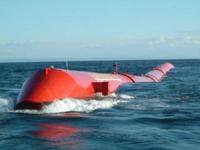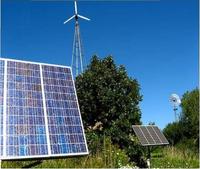-
Aon calls on U.S. to extend expiring Terrorism Risk Insurance Act
Aon plc called on the U.S. government to extend the Terrorism Risk Insurance Act (TRIA), saying that TRIA remains the best solution for handling the terrorism insurance exposure in the United States. Aon says that if the program is allowed to expire, more than 85 percent of insurers will no longer continue to insure terrorism risk. Ultimately, in the unfortunate event of a large-scale attack, the U.S. government would face the full burden of the associated costs of said terrorism.
-
-
Flood insurance is not available to Canadian homeowners – should it be?
Canada is the only G8 country in which insurance against overland flooding is not available to homeowners — but does it have to remain that way? A study released Monday explores issues related to flooding and property insurance, aiming to advance informed discussion of the potential better to protect Canadian homeowners. It reveals that while insurance executives are concerned about the lack of flood insurance and agree on many of the associated issues, opinions remain mixed concerning its viability in Canada.
-
-
Business demand for temporary visas, green cards to rise in 2014
In its newly released 2013 Annual Business Immigration Survey, the Global Immigration Benchmarking Council (GIBC) reports that business demand for temporary visas and green cards continues to rise. Thirty-four percent of companies anticipate hiring more H-1B visa holders in the year ahead, while 25 percent of companies anticipate hiring additional H-2A or H-2B workers.
-
-
Extracting maximum energy from currents

In the long sprint to find new sources of clean, low-cost power, slow and steady may win the race — the slow-moving water of currents and tides, that is. Just as wind turbines tap into the energy of flowing air to generate electricity, hydrokinetic devices produce power from moving masses of water.
-
-
World's first grid-scale isothermal compressed air energy storage system
A New Hampshire company has completed construction and begun startup of the world’s first megawatt-scale isothermal compressed air energy storage (ICAES) system. The system stores and returns megawatts of electricity to provide long-term grid stability and support integration of renewable energy sources like wind and solar. Unlike chemical battery systems, ICAES performance does not degrade over its lifetime or need frequent replacement. No hazardous materials are used.
-
-
Using spooks’ software to select wine
Delectable is a mobile application that allows users to explore wines by using technology currently employed to locate terrorists and prevent bank frauds. The application is considered to have the world’s largest database of wine, providing information on more than two million wines and offering users an option to purchase selected wines.
-
-
USDA plans to expand private meat inspection scheme despite criticism
The USDA’s plan to expand a pilot program which shifts responsibility from government inspectors at meat processing plants to private or company-employed inspectors has faced skepticism and criticism. The pilot plan was supposed to be evaluated, but the USDA Inspector General reported that the department has yet to study the effectiveness of the plan in improving food safety and efficiency in the plants. Critics say the replacement of government inspectors has led to an increase in the number of instances of contaminated meat in the U.S. plants which have adopted the plan – and also in the Canadian and Australian meat plant where the scheme has been implemented.
-
-
October is National Cybersecurity Awareness Month
This October marks the tenth National Cyber Security Awareness Month (NCSAM), an effort to educate millions of people each year about the importance of online safety and security. During the month, leaders from the public and private sectors will come together to advance its universal theme that protecting the Internet is “Our Shared Responsibility.”
-
-
Canada addresses environmental concerns over Keystone XL
Canadian prime minister Stephen Harper sent a letter to President Barack Obama last month offering to participate in joint efforts to reduce greenhouse-gas emissions in order to win approval of the Keystone XL Pipeline. Harper’s offer may allow Obama to approve the project without having to confront environmental groups.
-
-
Calculating the energy required to store wind and solar power on the grid

Renewable energy holds the promise of reducing carbon dioxide emissions. There are times, however, when solar and wind farms generate more electricity than is needed by consumers. Storing that surplus energy in batteries for later use seems like an obvious solution, but a new study from Stanford University suggests that might not always be the case.
-
-
New systems improve voice recognition
Graduate students and researchers at the University of Texas Dallas have developed novel systems that can identify speaking voices despite conditions that can make it harder to make out a voice, such as whispering, speaking through various emotions, or talking with a stuffy nose.
-
-
Senior U.S., Canadian government officials to gather at US/Canada Border Conference
For two days on 12-13 September, Detroit’s renovated Cobo Center will be host to a gathering of U.S. and Canadian border security officials and industry professionals meeting to discuss a myriad of important issues relating to border protection and facilitation of legitimate trade and travel between the United States and Canada.
-
-
Top Five most awesome robots
In the last decade, robots have often been employed on the battlefields of Iraq and Afghanistan, usually to seek out hidden bombs. More and more of these the robots are now being adopted by first response agencies to help in search-and-rescue operations in the wake of disasters. The growing interest in – and usefulness of — robotics have also inspired a series of competitions and challenges, some of which are directed at high-school and college students, to encourage budding scientists to go into the field of robotics.
-
-
FDA to require imported food to be inspected at the source

Each year about forty-eight million Americans get sick, some 128,000 are hospitalized, and about 3,000 dies from foodborne illnesses. Companies importing food into the United States will be held to higher safety and health standards if new proposed rules by the Food and Drug Administration (FDA) are passed. Under the proposal, the FDA would require importers to inspect food abroad before the food reaches American ports.
-
-
Shale gas threatens U.S. nuclear power industry
The U.S. nuclear industry is facing a new enemy, and it is not anti-nuclear peacenicks. It is the shale gas boom, which on Tuesday claimed yet another victim when Entergy Corporation said it would close its Vermont Yankee reactor ahead of schedule. It is the fourth U.S nuclear plant to be closed this year, as utilities have concluded that investing in refurbishing older reactors is no longer economically viable.
-
More headlines
The long view
Factories First: Winning the Drone War Before It Starts
Wars are won by factories before they are won on the battlefield,Martin C. Feldmann writes, noting that the United States lacks the manufacturing depth for the coming drone age. Rectifying this situation “will take far more than procurement tweaks,” Feldmann writes. “It demands a national-level, wartime-scale industrial mobilization.”
Trump Is Fast-Tracking New Coal Mines — Even When They Don’t Make Economic Sense
In Appalachian Tennessee, mines shut down and couldn’t pay their debts. Now a new one is opening under the guise of an “energy emergency.”
Smaller Nuclear Reactors Spark Renewed Interest in a Once-Shunned Energy Source
In the past two years, half the states have taken action to promote nuclear power, from creating nuclear task forces to integrating nuclear into long-term energy plans.
